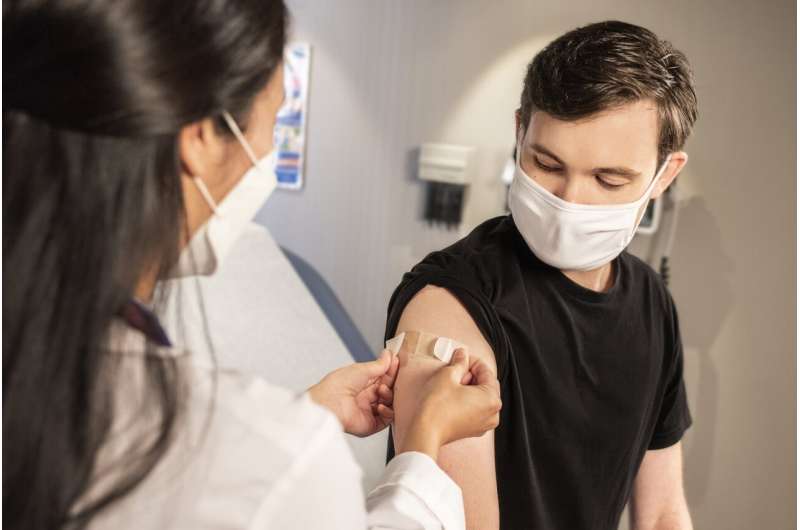
Would you be more willing to get vaccinated against the COVID-19 virus if you could participate in a lottery for cash and prizes? The answer was surprisingly no, according to Boston University School of Medicine (BUSM) researchers who found that Ohio’s “Vax-a-Million” lottery-based incentive system, intended to increase COVID-19 vaccination rates, was not associated with an increase in COVD-19 vaccinations.
Prior reports in the media had suggested that the Ohio lottery increased COVID-19 vaccinations, leading other states to use COVID-19 vaccine incentive lotteries in an attempt to increase slowing vaccination rates. “However, prior evaluations of the Ohio vaccine incentive lottery did not account for other changes in COVID-19 vaccination rates in the United States, such as those that may have been due to expansion of vaccination to ages 12-15,” explained corresponding author Allan J. Walkey, MD, MSc, professor of medicine at BUSM.
Using data from the U.S. Centers of Disease Control to evaluate trends in vaccination rates among adults 18 and older, the researchers compared vaccination rates before and after the Ohio lottery versus other states in the U.S. that did not yet have vaccine incentive lottery programs. Vaccination rates in other states served as a “control” for vaccination trends measured in Ohio, allowing the researchers to account for factors besides the Ohio lottery (such expanding vaccine eligibility to adolescents) throughout the country.
“Our results suggest that state-based lotteries are of limited value in increasing vaccine uptake. Therefore, the resources devoted to vaccine lotteries may be more successfully invested in programs that target underlying reasons for vaccine hesitancy and low vaccine uptake,” said Walkey, a physician at Boston Medical Center.
The researchers believe identifying interventions that can successfully increase COVID-19 vaccination rates is a critical public health issue necessary to curb the pandemic. “It is important to rigorously evaluate strategies designed to increase vaccine uptake, rapidly deploy successful strategies, and phase out those that do not work,” Walkey said.
Source: Read Full Article
